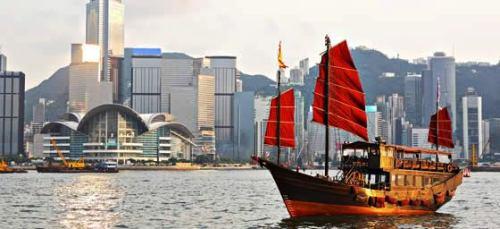So I’ve noticed there’s a steady rumbling going on amongst the masses here in Hoong Kong and every now and then it threatens to errupt into a mighty roar!
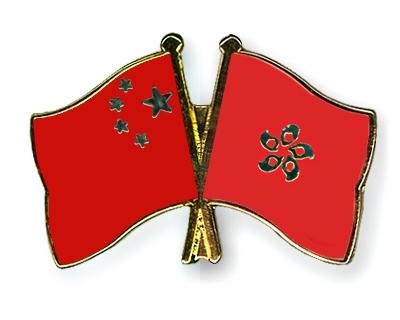
The dilemma? Hong Kong, for all intents and purposes, belongs to China.
Nothing new there you might say — the metropolis famous for its designer goods and delectable Dim Sum has been a part of the ‘motherland’ for more than a decade.
But it seems the years have done nothing to ease the frustration with these ties which continue to be a bone of contention for Hong Kong’s natives.
I learned early on in my expat adventure, whatever you do… don’t call a Hong Kong person ‘Chinese.’
My local friends tell me they’re quite okay with ‘Hong Kong-Chinese’ but the upshot is, the vast majority of Hong Kong people are reluctant to be lumped in with China, mainland China that is.
You may remember in 1997 the ‘hand-over’ took place – Hong Kong was essentially reunited with China after 156 years of British rule.
With this transfer of power came the promise Hong Kong would keep its western-style freedoms not seen in Mainland China and remain a semi-autonomous state – an SAR (Special Administrative Region).
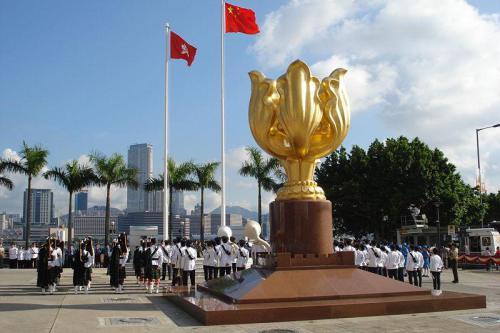
One country, two systems.
All sounds pretty good in theory… but 15 years on, that simmering bubble of animosity is reaching bursting point.
It seems Hong Kong and Beijing have very different ideas of what being ‘part of China’ means.
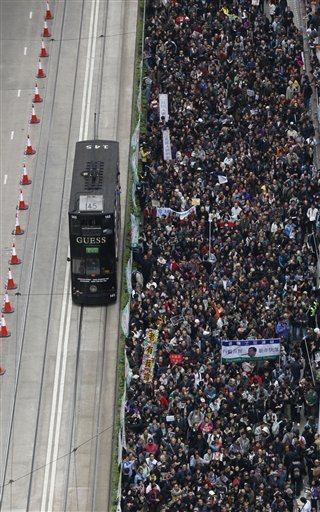
Locals are calling for the Chief Executive to step down amid allegations of corruption and are demanding full democracy for Hong Kong.
Around 95 percent of the city’s population is ethnically Chinese but Hong Kong is indisputably a place where east meets west.
Elements of traditional Chinese culture have long been savoured and mixed with British western influences to shape the energetic city that stands tall before us today.
Everything from the law to politics, finance, education, language and food… to the very way of thinking make Hong Kong a unique pocket of culture – something its people are fiercely proud of.
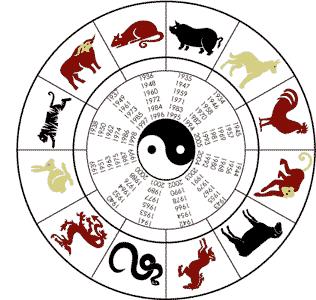
Don’t be fooled into thinking it’s all just a bit of hocus-pocus… take the number four for instance – it’s considered unlucky because of its similarity to the word ‘death’ and let me tell you, most buildings do not have a 4th floor or feature the number 4 in their numbering at all.
(Just quietly I was a little bit irked to hear this, given both mine and my husband’s birthdays fall on the 4th (shame on us) but faith in my lucky number has been restored after reading it was the most auspicious day for weddings on the Chinese calendar this year. Hear! Hear!)
And as sure as night becomes day…when it comes to cuisine, Chinese food is as critical to Hong Kong as chopsticks are to eat it. (See my previous post: A date with destiny.)
So where’s the love lost in this Chinese love affair?
We’ve all seen or experienced first-hand, friendly rivalry between two countries living in close proximity to each other with cultural similarities. I’m thinking Australia/New Zealand, Canada/America, England/Wales (just don’t call one the other or you could feel a swift boot up the backside right)?
But this feud goes far deeper than sibling rivalry.
Hong Kong people say Mainland Chinese are unsophisticated, brash, rude and pushy, on the flip-side Mainlanders say Hong Kongers can be snobby, disrespectful to the motherland, suffer from a superiority complex…and are hostile.
In a recent move to abate the locals so-called hostility towards the Mainland, Hong Kong’s leader put a stop to Chinese mothers giving birth in Hong Kong.
When I was pregnant with Ava in 2011, there was a lot of jostling for a place at the hospital, locals feared they wouldn’t get a spot and would be turned away at the last minute. Word on the street was Mainland Chinese were crossing the border and taking valued hospital beds.
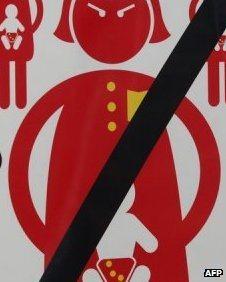
It wasn’t too far from the truth, more than 35,000 woman from the mainland gave birth in Hong Kong that year.
Why? Possibly because children born in Hong Kong automatically receive local residency status along with free education for 12 years, medical care at minimal cost and visa-free travel to many foreign countries, as well as the promise of an escape route should times get tough in China.
While I completely understand the frustration from locals here, you can hardly blame desperate ‘mothers to be’ for giving it a go can you.
For some it’s also a chance to side-step China’s one-child policy by having their second child ‘offshore.’
Adding salt to the wound, there’ve been more howls of protest over proposed curriculums for local schools amid fears of Communist Party brainwashing.
To promote greater awareness and identification with the ‘motherland,’ China planned to introduce mandatory courses on ‘moral and national education’ including lessons on Chinese government bodies and the correct etiquette for raising the national flag.
The Chinese government says there’s nothing controversial about teaching Hong Kong students to appreciate and love the motherland, but it sparked a flurry of criticism during public consultations and has since been revised and delayed.
Last weekend I took a 90 minute train ride to Guangzhou, China (where many Hong Kongese originally hailed from) the third biggest city behind Beijing and Shanghai. (Just for the record, coming from Hong Kong you still need a visa and pass through customs on arrival and departure.)
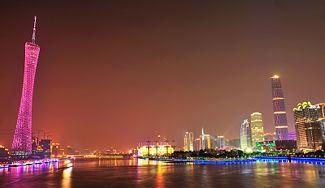
On the surface it looks pretty much like any other modern city you might visit.
State of the art skyscrapers light up the night sky, tree-lined streets are flanked by brand name shops like McDonalds and Starbucks, well known hotels like the Four Seasons, Westin and the Hyatt dot the inner city and taxis buzz around picking up and dropping off people from all walks of life (perhaps in a slightly more hairy fashion).
As with Hong Kong, Cantonese is the main language and Dim Sum is naturally top of the menu.
But underneath the modern-day exterior, you sense there’s a difference.
English is limited in both conversation, signage and literature and ‘life’ is highly regulated.
There’s no Facebook, no Google or Twitter, no blogging and what you read in the local newspaper is closely monitored by the government. In fact as I write this, hundreds of free-speech protesters have clashed with Communist party supporters in Guangzhou over government censorship.
But politics and ‘freedom of press’ aside, the most common complaint from Hong Kongers is that mainland people “don’t understand our culture.”
Sure, Mainland Chinese push a little more, spit and slurp a little more and don’t like to line up, but what is often forgotten is the lack of western civilization most Chinese have experienced in their country.
On their turf this behavior is considered completely normal.
More drama prevailed late last year…it all started on the MTR (local train system) a Hong Kong man told a mainland mother, who’s child was eating dried noodles and dropped some on the floor, that eating wasn’t allowed on the train. Other Mainland Chinese sitting nearby mocked the Hong Kong man’s less-than-perfect Mandarin.
He retorted that this was Hong Kong, they should be speaking the language here – Cantonese. A verbal feud broke out and police came in. It made newspapers and television news around the globe and went viral on social network sites.
28 million tourists from the mainland flocked to Hong Kong last year to spend up large. It’s fair to say, in recent years, wealthy mainland Chinese have become a welcome lifeline for Hong Kong’s struggling economy, filling hotel rooms and emptying designer stores (their shopping sprees make up one-third of retail sales).
Locals say they’re depriving them of goods and services – buying up real estate and inflating prices. Even milk formula has at times become scarce in supermarkets. After the 2008 tainted-milk scandal in China, Mainland Chinese crossed the border to stock up on imported formula, stripping shelves and leaving local parents fuming.
There is more broad-based anger about the billions of Hong Kong taxpayers’ dollars being spent on high-speed rail links and huge bridges to China without any public consultation.
Gordon Mathews from the Chinese University of Hong Kong says the greatest fear Hong Kong people have is Hong Kong becoming just one more city in China.
“It is the fear of 7 million against 1.3 billion people; it is the fear that Hong Kong will no longer belong to Hong Kongers. It is the fear of colonization by the mainland.”
Lets hope this identity crisis isn’t a case of ’lost identity’ for Hong Kong but rather a ‘mid-life’ crisis…a renaissance if you like – an opportunity to reconcile yet reclaim that independent spirit that makes this city so deserving of its title – Asia’s world city!
As China continues to build bridges connecting the motherland to its child, may she remember this great quote from author C. JoyBell C.
“I think that the best thing we can do for our children is to allow them to do things for themselves, allow them to be strong, allow them to experience life on their own terms, allow them to take the subway…let them be better people, let them believe more in themselves.”
